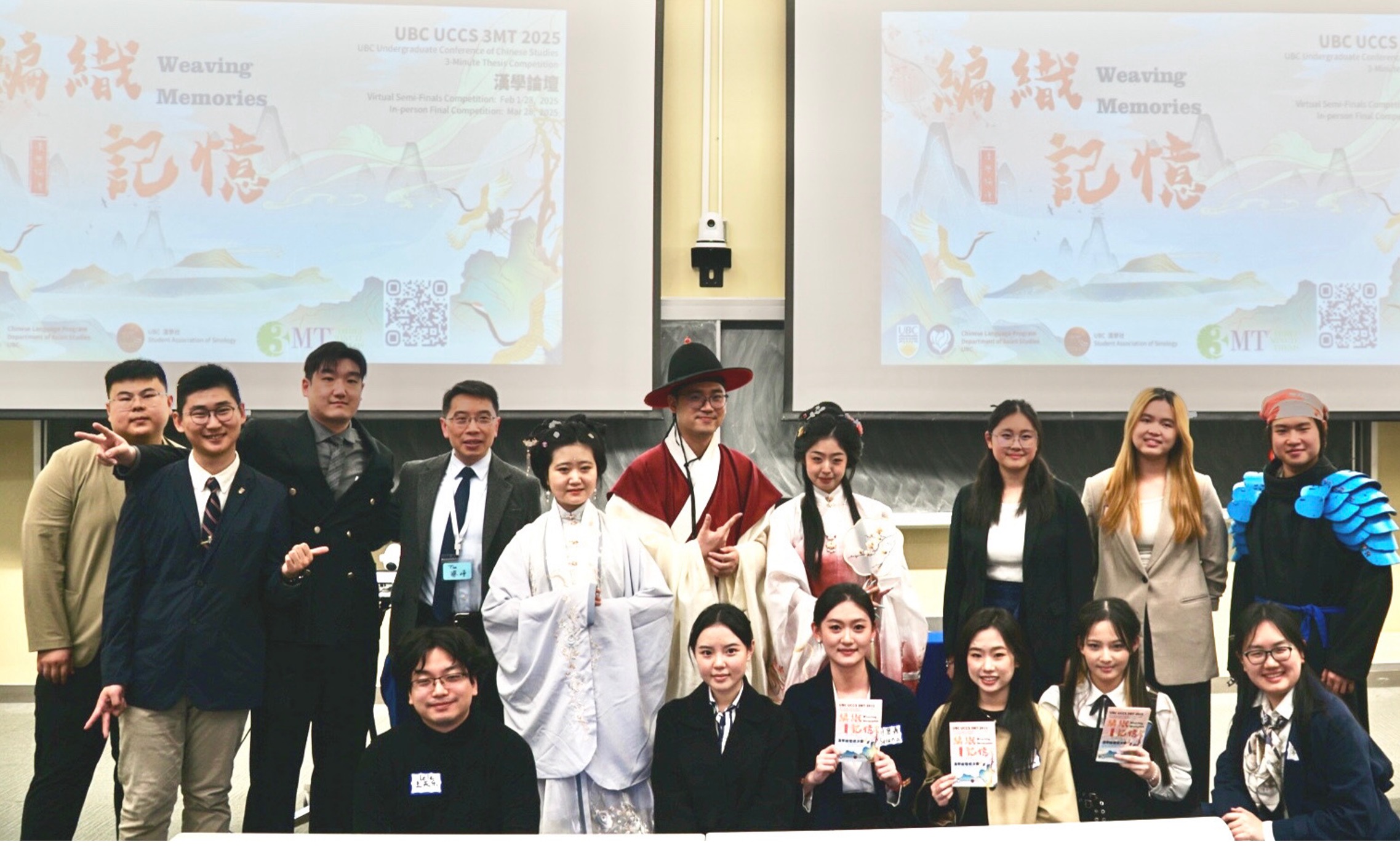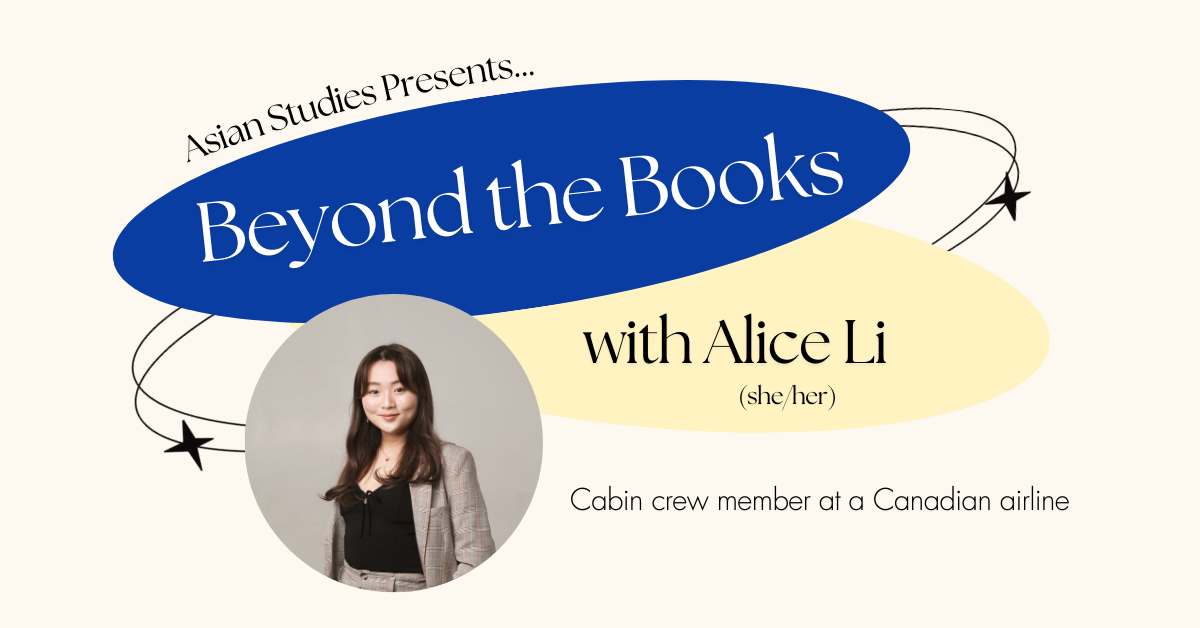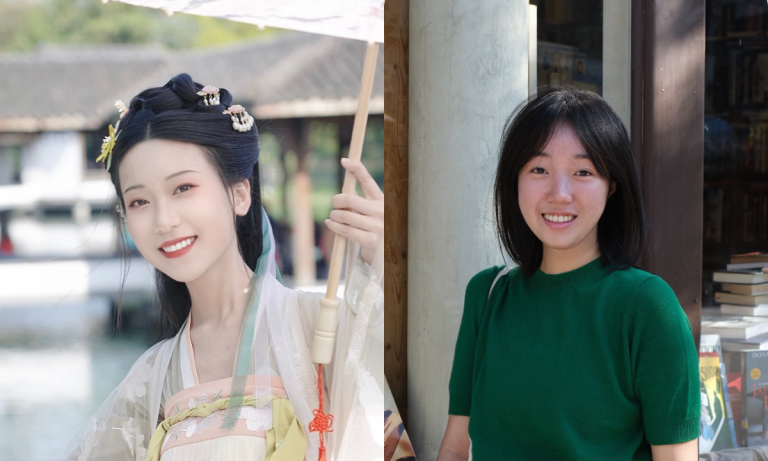

This year, Chinese Language Program students Elina Xu and Ruoxi Xu received the Excellence Award (优秀奖) in the 2022 Chia-ying Yeh & Minsheng Scholarship competition. Their achievements represent a milestone, as they are the only recipients from North America in this year’s group of applicants, and this is the first time that two winners from a scholarship year hailed from UBC.
Elina Xu’s award-winning works:
Research Paper: “The Influence of Confucianism, Buddhism, and Daoism on Wang Wei’s Philosophy of Life”
Video Speech: “On Nalan Xingde’s Lyric Poem ‘Silk-washing Stream’”
Ruoxi Xu’s award-winning works:
Research Paper: “From the Ephemeral to the Eternal: On Cao Pi’s ‘Banquet Poems’”
Video Speech: “The Moral Politics and Poetic Sorrows in Drinking: On Cao Cao’s ‘Short-tuned Ballad’”
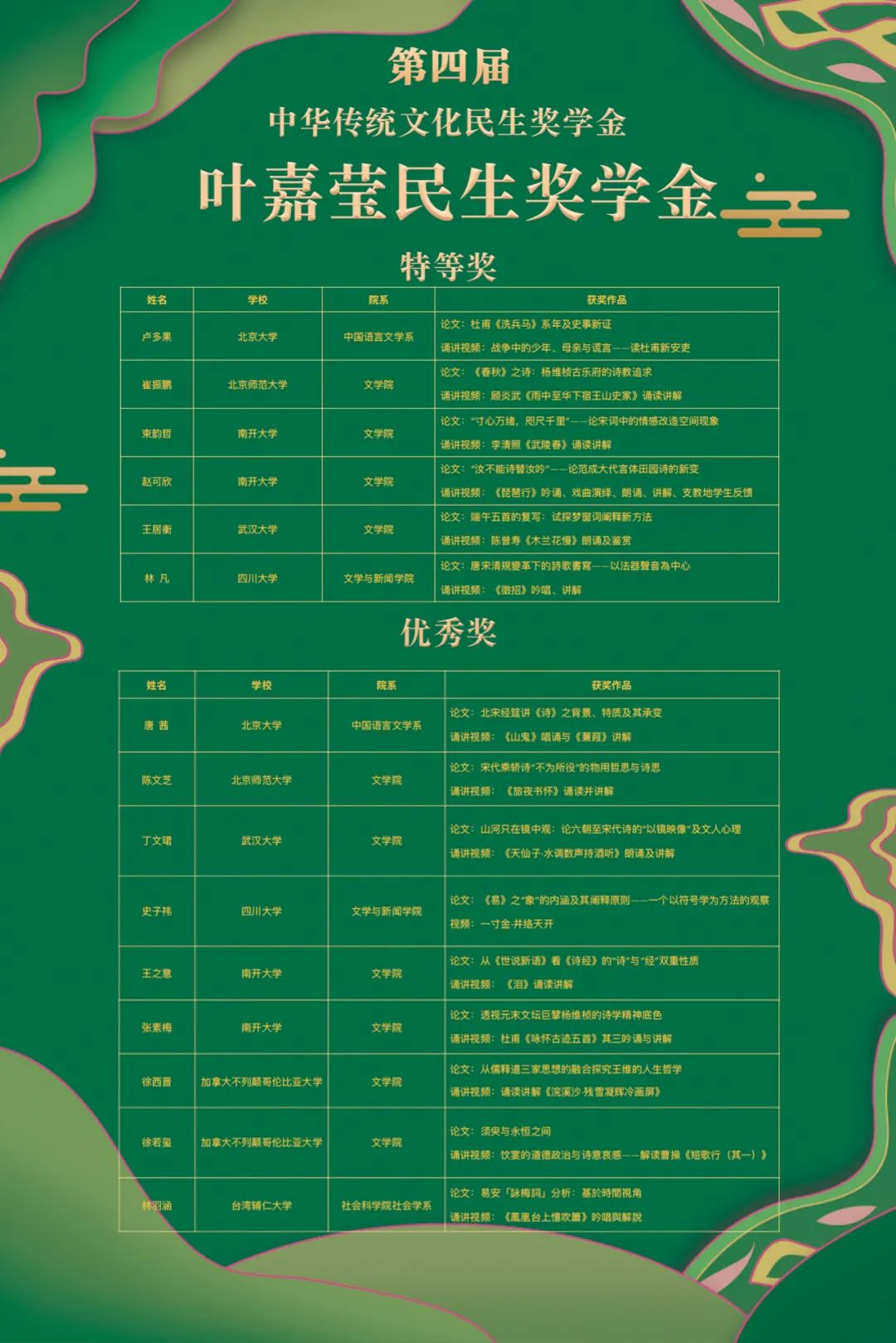

Names of recipients, with their home institutions and titles of award-winning works, announced by the 2022 Chia-ying Yeh & Minsheng Scholarship
UBC’s Professor Emerita Chia-ying Yeh founded the prestigious scholarship in partnership with Minsheng Bank. Open to university students in East Asia and North America, the award aims to encourage the exploration of classical Chinese poetry and its place in traditional Chinese culture. Applicants must present a full-form research paper and a sophisticated speech on their chosen poetry piece, demonstrating advanced and versatile skills in classical studies.
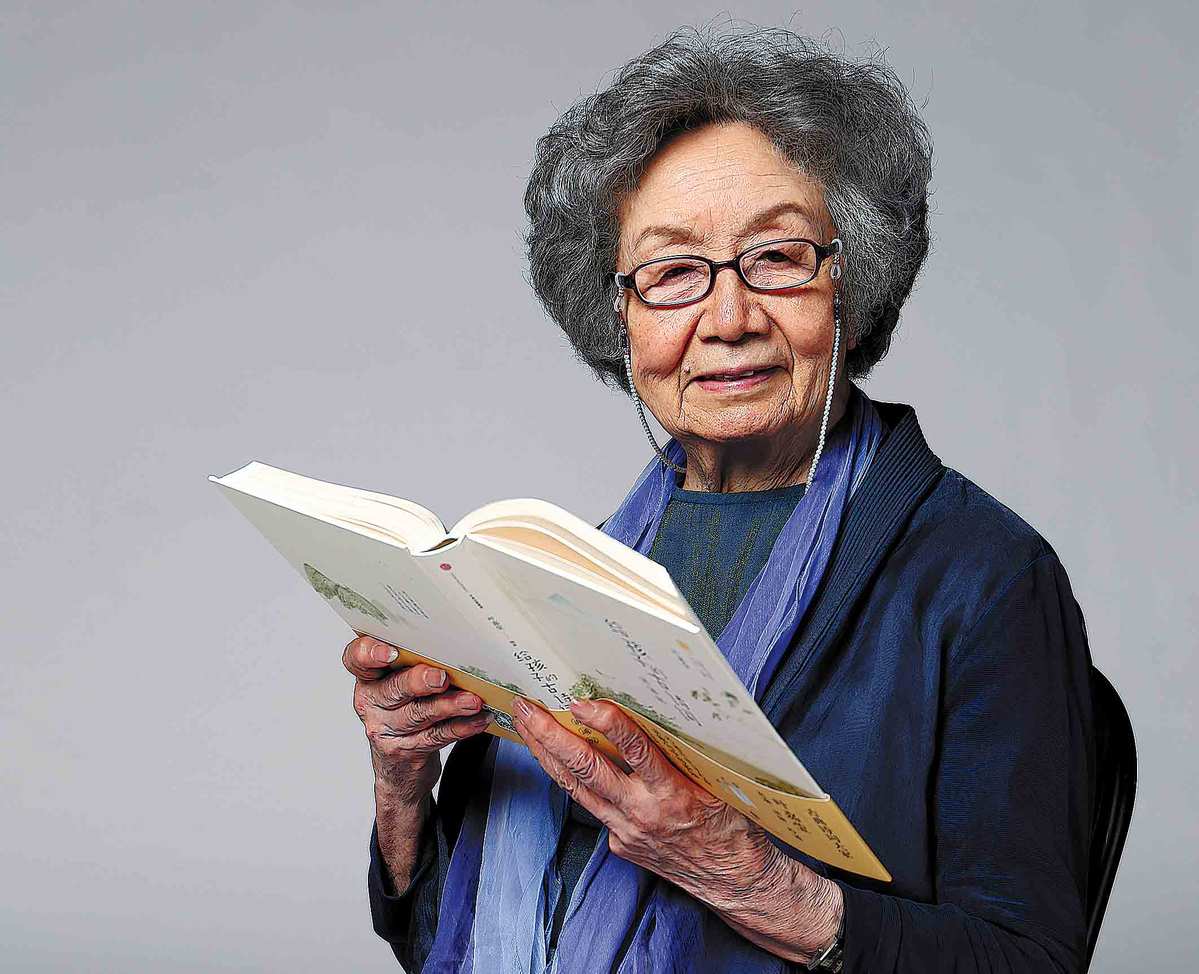

Professor Emerita Chia-ying Yeh, UBC
For Elina Xu (徐西晋), double majoring in Asian Area Studies and Economics, classical Chinese poetry first piqued her interest in elementary school through a Chinese TV program called “Lecture Hall.” Poetic tales from childhood captured her imagination, which evolved into a fondness for poetry. She recalls developing little songs to help herself recite longer poems and watching the popular TV competition show “Chinese Poetry Congress” during self-study time.
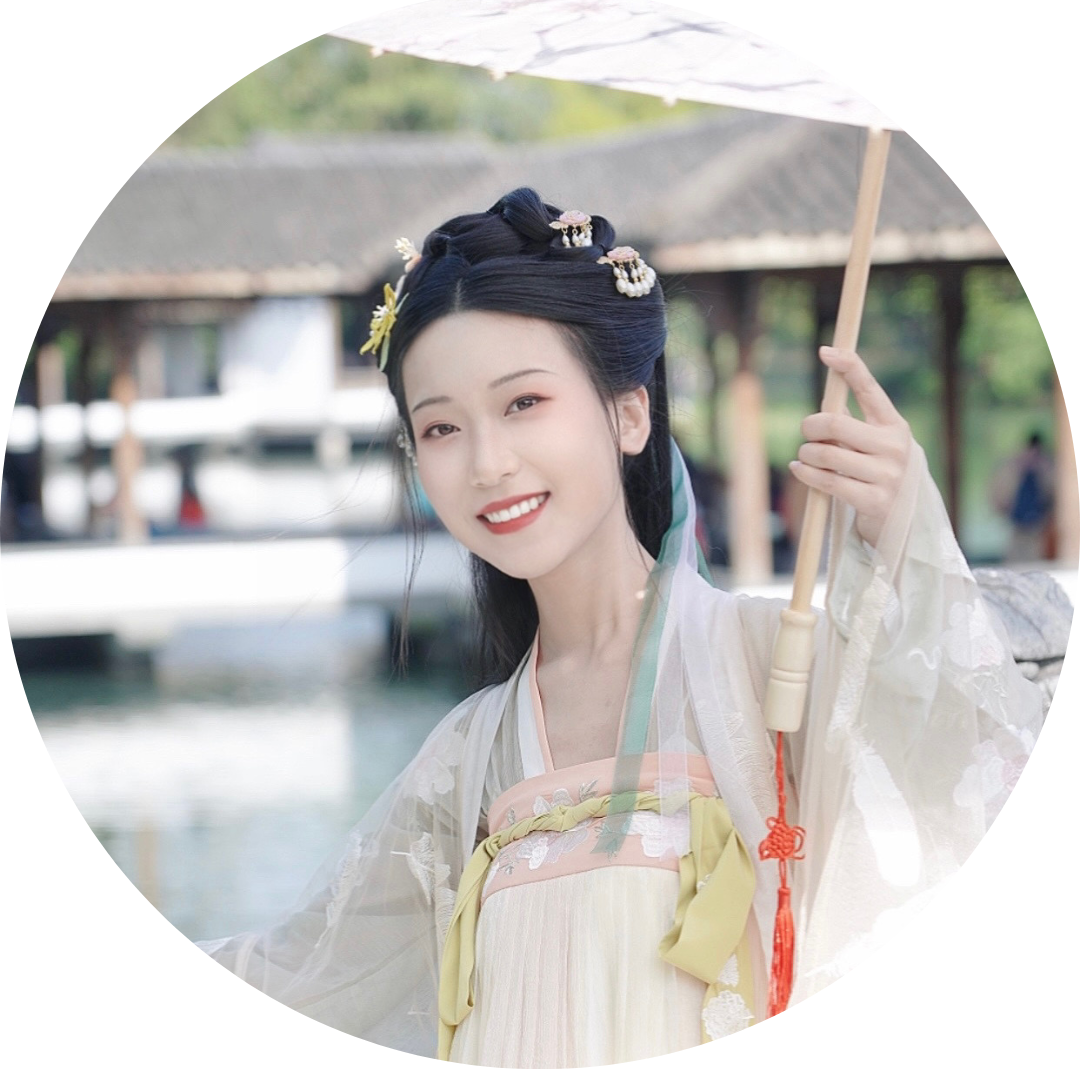

Elina Xu, Asian Area Studies and Economics student
Elina’s interest in poetry continued in university, as she took CHIN 471 and CHIN 473 to study classical Chinese poetry since the Tang dynasty. To encourage others to explore the beauty of ancient verse, she grasped every opportunity at UBC to foster a supportive learning community along with her peers. This peer-to-peer learning undoubtedly helped Elina cultivate versatile skills in orchestrating her award-winning works.
“Elina was passionate about classical Chinese poetry and enthusiastic about using her talents to promote the subject among UBC community members. Besides playing a leading role
in all kinds of learning activities in the classroom, Elina and several friends developed a website to display their classmates’ work on classical Chinese poetry and hosted a cultural event to help community members appreciate Chinese poems.”
Elina sees poetry as a gate to the past, a parallel universe where ancient words interpret modern life. In particular, she finds the poems of Wang Wei (692-761) captivating, remarking that the Tang poet reminds her of a “bosom friend.” Wang Wei’s simple yet heartfelt words stood out to Elina. The more she researched the poet’s life, the closer she felt to understanding his poems. Elina expressed her deep fondness for this self-reflective man by writing about his work in her term paper for CHIN 471, which she later revised for her scholarship application.
Elina also chose to talk about a poem by the Qing poet Nalan Xingde (1655-1685) in the video speech submitted for the scholarship application. She remarks that the video’s poetry interpretation required her to place a particular emphasis on her sentimental feelings, whereas her critical paper took on an objective, analytical style.
“Packed with a broad array of sources from intellectual history, Elina’s research paper impressed me with a thoughtful, rigorously structured exploration of the literary merits of the Tang poet Wang Wei. In the speech video, Elina's recitation of the Qing poet Nalan Xingde's lyrics appropriately handles the poetic sentiment, taking into account the elegant taste of life closely associated with Chinese lyric poetry. Her achievements will inspire many students to greater heights while weaving classical studies into a tech-dominated pattern of daily life.”
Elina’s speech video submitted for the scholarship application
“I see this contest as a test and an opportunity to prove myself. However, what truly motivated me to participate should be a desire to express how classical Chinese poetry has changed my life.”
Ruoxi Xu (徐若玺), the other UBC winner of the 2022 Chia-ying Yeh and Minsheng scholarship and a student majoring in Ancient Mediterranean and Near Eastern Studies, also wanted to express her love of classical Chinese poetry. In particular, she wanted to analyze its similarities to Western classics from Ancient Greece and Rome.
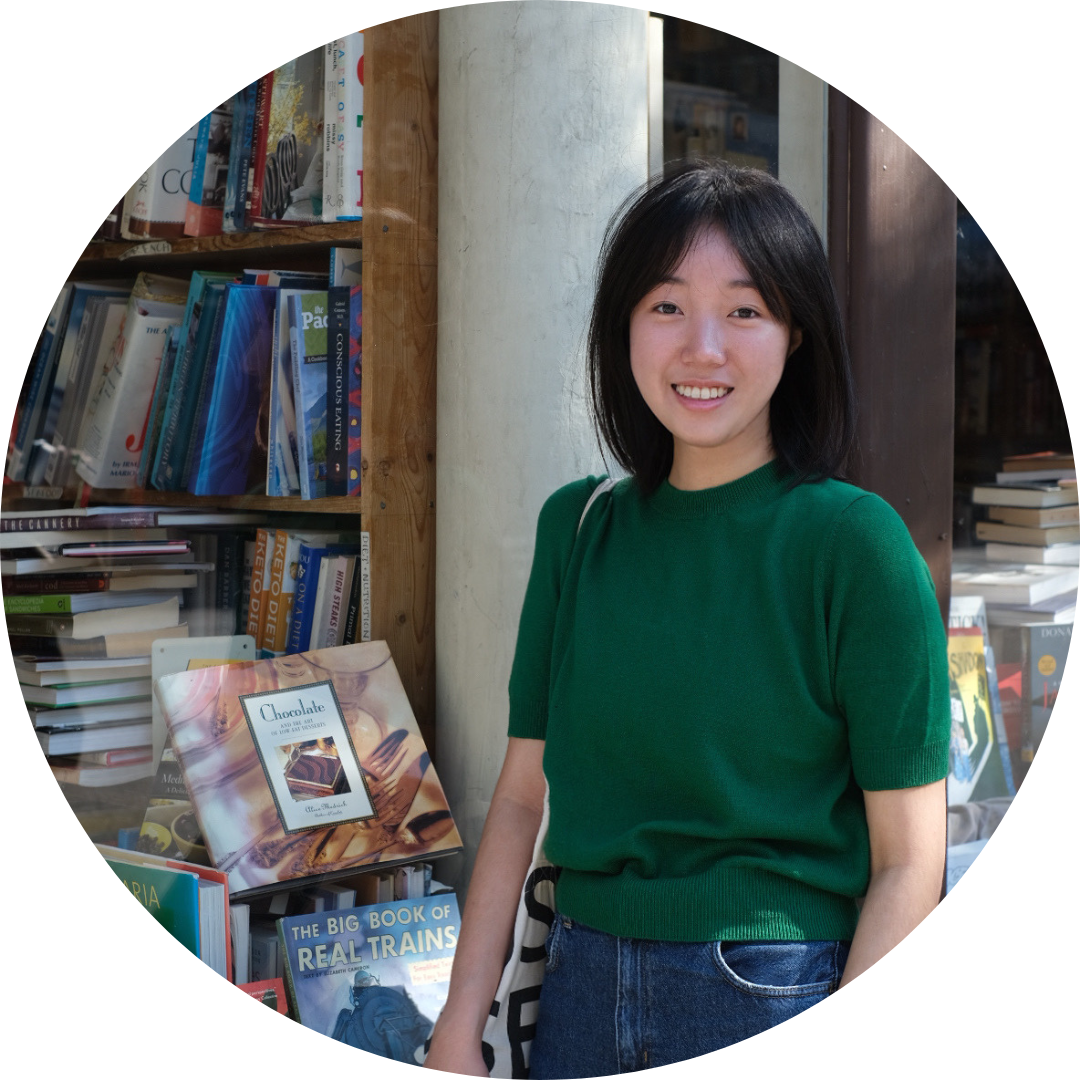

Ruoxi Xu, Ancient Mediterranean and Near Eastern Studies student
As a child, Ruoxi found herself enamored by classical Chinese poetry. She first memorized Li Bai’s “Quiet Night Thoughts,” which sparked a lifelong interest in classical verse. This interest soon branched out into ancient literature from Mediterranean civilizations. In addition to volunteering in UBC’s Chinese Language Program, she took CHIN 461, 463, 471, and 473 to help her stay connected to her passion for classical Chinese literature.
“Ruoxi actively participated in class activities and often conducted in-depth research on classical Chinese poetry after class. In addition, she played an important role in editing classmates' work on classical Chinese poetry and set up a website to display them.”
With encouragement from her professors, Ruoxi submitted a paper analyzing Cao Pi’s (187-226) “Banquet Poems.” Though she first found the work challenging, she was soon able to grasp the relationship between themes of drunkenness and grief, stemming from the poet’s experience of losing many friends to an epidemic during the late Eastern Han dynasty. It unlocked a new angle for Ruoxi, introducing a “darker” aspect to Cao Pi’s poetry that starkly contrasts with his splendent background.
“Ruoxi’s paper demonstrates unique inter-textual and philosophical thinking. Her analysis is meticulous, with clear logic of the thesis, a powerful argument, and rigorous citations, reflecting her excellent academic talent.”
As a Classical Studies major, Ruoxi set out to compare and contrast Cao Pi’s work with banquet literature from Ancient Greece and Rome. Both cultures incorporated similar allusions and dynamics into the banquet genre, and authors from both regions shared the same “nuanced intertextuality” between drunkenness and death. The trans-regional and cross-cultural connections allowed Ruoxi to relate her home culture to her chosen study area.
Ruoxi finds poetry a unique way of observing the world around her. For her, participation in the Chia-ying Yeh and Minsheng Scholarship is an experience of writing through time and an attempt to construct cross-cultural literary connections. The world’s understanding of Cao Pi has grown thanks to Ruoxi’s research, yet the personal development she gained from this journey will stand out to her above all else.
Ruoxi’s speech video submitted for the scholarship application
“Ruoxi discusses Cao Pi's poetry from a very unique perspective. Taking an approach that is semiotic, psychoanalytical, and intertextual at the same time, she untangles the mystery of Cao Pi's obsession with images of death in his poems about banquets. For an undergraduate paper, it is highly original and reveals Ruoxi's great potentiality to become an insightful scholar in the foreseeable future.”
“I met so many talented peers from the Department of Asian Studies and other disciplines from this contest. I was not only touched by their knowledge of classical Chinese poetry but also their open and inclusive spirit.”
For students interested in Chinese literature like Elina and Ruoxi, the Chinese Language Program offers a variety of CHIN 450+ courses spanning different periods and genres of Chinese literature. These courses will help students increase their knowledge of Chinese culture, develop sharp critical thinking, and cultivate versatile skills in academic communication. CLP’s yearly educational and cultural activities, like the Undergraduate Conference of Chinese Studies 3MT and the Lantern Festival Poetry Night, will provide students with an opportunity to premiere for such scholarly competitions as the Chia-ying Yeh and Minsheng Scholarship. Further information about advanced Chinese language and literature courses can be found on the CLP website and the UBC Academic Calendar.

